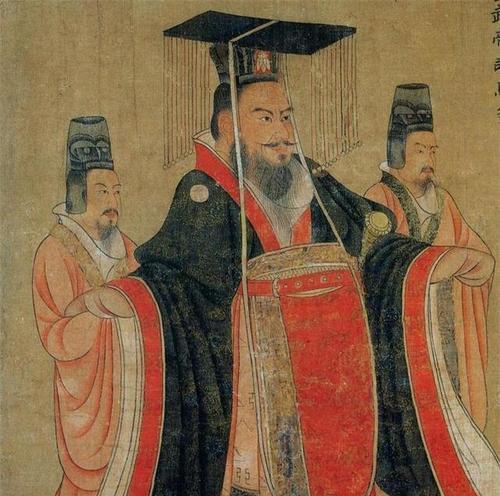The historical figure to be talked about today is Sima Yan, the founding emperor of the Western Jin Dynasty who ended the chaos of the Three Kingdoms and unified China. Sima Yan was an interesting emperor in Chinese history. First of all, as the founding emperor, he never led troops to fight, let alone made military merits, compared to his predecessors Liu Bang, Liu Xiu, Cao Cao and others, Sima Yan's qualifications as emperor were obviously much lower. Although Cao Pi also enjoyed his success and ascended the throne as emperor, he did not achieve great unification. The second interesting thing about Sima Yan is that he called himself Emperor Qian and Empress Dowager Ruo. Before becoming emperor, Sima Yan plotted and cunning, relying on calculations to ascend to the throne. As empress dowager, Sima Yan exerted great efforts to govern and made quite a difference.

Sima Yan (司馬炎), courtesy name An Shi , was the grandson of Sima Yi , a famous minister of Cao Wei. Sima Yi gained Cao Cao's trust for supporting Cao Cao's claim to the throne and became Cao Pi's teacher. Sima Yi served as Cao Cao, Cao Pi, Cao Rui, and Cao Fang IV, and successively served as the chief bookkeeper of Xiangfu, Yushi Zhongcheng, Lu Shang Shushi, Shi Zhong, Zhi Jie, And Du Du of Chinese and foreign military forces, and Taifu. In the first month of the first year of Jiaping (249), Sima Yi took advantage of Cao Fang and Cao Shuang's departure from the city to worship their ancestors and launched a coup d'état, after which he began to manipulate the regime. The Sima family controlled the government, cultivated henchmen, eradicated dissidents, and gradually prepared for the Sima family's usurpation of the throne.
By August of the second year of Xianxi (265), Sima Zhao, who was preparing to claim the title of emperor, suddenly fell ill and died, so the protagonist of the change of dynasty became Sima Yan, who had just been identified as the son of the world three months earlier. Sima Yan's position as the son of the world did not come easily. Because although Sima Yan was Sima Zhao's eldest son, Sima Zhao preferred the talented second son Sima You. Sima Zhao passed on his second son Sima You to Sima Shi and intended to make Sima You his son, so that he could formally indicate that the world was fought down by Sima Shi the King of Jing. In order to regain the position of Shizi, Sima Yan tried his best to win over and seduce the ministers around Sima Zhao, so that these ministers said a lot of good things in Sima Zhao's ears and played a lot of tricks, and finally three months before Sima Zhao's death, Sima Yan was officially established as the son of the world.
Sima Yan never led troops to fight before becoming emperor, and only held the positions of ZhishiZhong, Fengche Duwei, and Zhonglei general Jiashan Riding Changshi in the Cao Wei government, and after Sima Zhao's death, Sima Yan succeeded Xiangguo and the King of Jin. At the end of Xianxi's second year, Cao Huan succumbed to the pressure of his ministers and Chan gave the throne to Sima Yan, the King of Jin. Sima Yan can be said to have enjoyed the fruits of the struggle of three generations of his ancestors, he changed the name of the country to Jin, changed the name of Yuan Taishi, Emperor Wei was named King Chen Liu, and the capital was moved from Luoyang to Yicheng.
Judging from Sima Yan's history of ascension to the throne alone, he is more like a sinister and cunning political speculator who is good at conspiracy and trickery. However, after Sima Yan became emperor, he seemed to have changed into a man, ambitious and determined to make a difference. In the first and second years of the Tai Dynasty, he successively promulgated many measures to change customs and eliminate the maladministrations of the previous dynasty, such as abolishing the overseers of the Cao Wei and Han Dynasties and lifting their imprisonment, or for example, removing the Cao Wei government's decree on the retention of hostages by soldiers on expeditions, restoring the system of advisors abolished by Cao Wei, and appointing honest and outspoken and talented officials like Fu Xuan and Huang Futao as advisors, so as to open up the road of direct speech with wide knowledge and knowledge. Sima Yan also advocated frugality, and he gave the pearls and jade of the former imperial palace to his subordinates, leaving them behind, and even ordered that the tribute of the county governments to the imperial family be reduced, prohibiting the Lefu from rehearsing the beautiful hundred plays with large expenses, and stopping the production of various games and hunting utensils.
In addition to the refreshing new policy, in terms of appointing and appointing people, Sima Yan tried his best to ignore the old grievances and use some officials who originally belonged to the Cao Wei clique. Xu Qi's father, Xu Yun, was killed for his involvement in the Wei lord's conspiracy to depose Sima Shi. Sima Yan thought that Xu Qi was talented, and despite the opposition of others, he promoted him to the rank of Ancestral Lang. Later, he also selected a number of people who had originally served in the Shu Han government, including the famous scholars Yu Zhou, Wen Li and others, as well as Zhuge Liang's grandson Zhuge Jing. In the fourth year of the Tai Dynasty (268), Sima Yan also promulgated the tai shi law, an important legal code in ancient China.
With the efforts of Sima Yan, the land of China finally ended many years of war, and the people began a peaceful and stable life again.